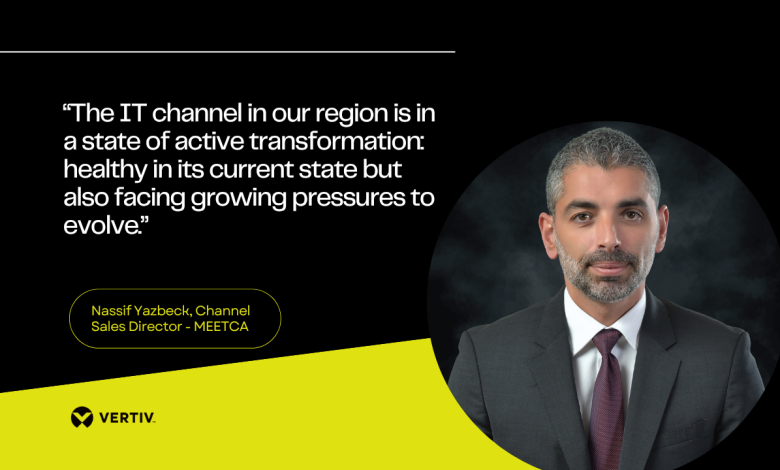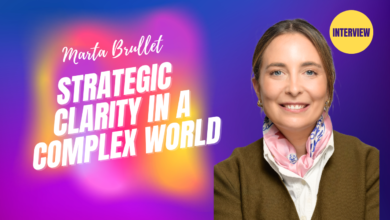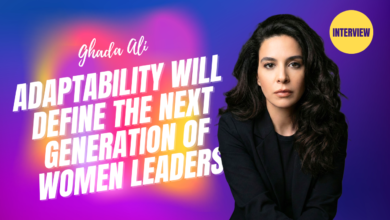“Build a Culture Grounded in Mentorship and Continuous Learning”

Nassif Yazbeck, the Channel Sales Director for MEETCA at Vertiv, says, an emerging shift is the growing demand from partners for self-service tools, real-time insights, and localized data-driven digital experiences
Could you share an overview of your career path to date, highlighting the pivotal moments or achievements that have shaped your leadership within the IT channel?
My career in the IT channel spans over two decades across the Middle East, Turkey, Central Asia and Africa, and it has been a dynamic journey shaped by innovation, adaptability, and a deep commitment to partner success in one of the most diverse and fast-evolving markets in the world.
I began my career in sales at a regional value-added distributor, which gave me deep, firsthand exposure to the challenges and opportunities faced by channel resellers in the Middle East and North Africa (MENA) region. This early experience laid the foundation for my understanding of how vital strong partner ecosystems are, especially in a region where relationships, local presence, and tailored solutions are critical to success.
A pivotal moment came when I transitioned to a leading technology vendor position, where I led cross-functional teams and played a key role in scaling partner programs across the Middle East and Africa. This role sharpened my ability to bridge global vendor strategy with local market execution, while balancing scalability with cultural and operational nuances.
The past seven years at Vertiv have marked a transformative chapter in my career. I’ve experienced firsthand how Vertiv invests deeply in its people; equipping them with the tools, mentorship, and strategic exposure to thrive. Starting with a regional role in Middle East and Africa, I’ve since grown to lead across the broader Middle East, southeastern Europe, Turkey and Central Asia (MEETCA) region. Vertiv’s commitment to internal development has greatly influenced both my journey and my leadership approach.
What has shaped my leadership most is a relentless focus on trust, transparency, and mutual growth. In METCA region, where the pace of change is high and market conditions can vary dramatically, strong channel leadership means being adaptive, culturally aware, and consistently value driven.
I firmly believe the channel today is no longer just a route to market; it’s a route to innovation, relevance, and customer success. My goal has always been to empower partners to not only sell more, but to grow more, both sustainably and strategically.
As a key channel influencer within your company, what are your primary roles and responsibilities in shaping strategy, driving engagement, and fostering growth within the partner ecosystem?
My primary role within Vertiv is to turn our company’s strategy into execution by fostering a partner-first ecosystem built on trust, shared success, and long-term value creation. In 2024, this approach helped drive strong revenue growth across the Middle East, Turkey, and Central Asia channel organization—proof that our vision, when executed with focus and collaboration, delivers measurable impact.
My core responsibilities revolve around three key pillars. The first is dynamic segmentation—prioritizing high-potential opportunities while maintaining an inclusive partner base. The second is solution-based selling, where we evolve from transactional relationships to co-created, outcome-driven engagements. The third is strategic partner enablement, which focuses on equipping partners with the tools, autonomy, and visibility they need to scale effectively.
Beyond structural changes like launching a unified partner platform and a refreshed certification model, I focus on building real trust- translating Vertiv’s global channel vision into everyday support. I stay close to our partners, leading from within, and aligning our efforts on both strategic and tactical levels.
I also see team development as essential. Regular enablement sessions, joint business planning forums, and mentoring initiatives help us grow together, not just as a business, but as a community. Whether it’s championing inclusive growth, mentoring future talent, or embedding responsible practices, I believe that long-term success stems from strong relationships, both internally and externally.
Ultimately, shaping strategy, driving engagement, and fostering growth means being more than a leader,- it means being a trusted partner, dedicated to a shared vision that drives real impact.
How would you assess the current health and evolution of the IT channel, particularly within our region? What significant trends or shifts are you observing?
The IT channel in our region is in a state of active transformation: healthy in its current state but also facing growing pressures to evolve. We’re seeing a clear shift from traditional product reselling toward value-added services, cloud adoption, and outcome-based solutions. This transition is not uniform across the Middle East, but the general direction is consistent.
One of the trends we see is about cloud adoption: once cautiously paced, it has now accelerated, especially in markets like the UAE and Saudi Arabia. This is driving partners to pivot from transactional models to recurring revenue streams, managed services, and cloud orchestration. We’re seeing traditional resellers reinvent themselves as MSPs, CSPs, or hybrid integrators, something we actively support at Vertiv through tailored enablement programs, targeted technical trainings and certifications, and flexible solution frameworks that help our partners evolve at their own pace.
As vendors push toward ecosystem-led growth, partners are increasingly expected to collaborate across specializations blending active technologies and critical infrastructure into seamless, integrated solutions. At Vertiv, our partner enablement strategy is built around this reality. We’re enabling collaboration through modular, interoperable offerings and incentivizing value creation beyond the point of sale.
Another emerging shift is the growing demand from partners for self-service tools, real-time insights, and localized data-driven digital experiences. The health of the channel now depends significantly on how well vendors and distributors empower partners with automation, data, and training that is relevant to local markets.
However, a persistent challenge across the region is access to skilled IT professionals, particularly in cloud, AI, and cybersecurity. Channel leaders must invest in enablement, certifications, and local capacity building to close this skills gap and remain competitive. At Vertiv, we’re committed to bridging this skill gap and are already engaged in collaborative efforts to support talent development; including structured involvement in key training initiatives focused on AI and digital infrastructure.
Overall, the IT channel business in the Middle East is evolving in the right direction, with significant opportunity for those who are agile, ecosystem-oriented, and committed to long-term value creation. While the shift can be disruptive, it’s also opening new revenue streams and deeper customer engagement for those who embrace the change.
What do you see as the single biggest challenge facing the IT channel in the region today, and conversely, what is the most significant untapped opportunity for partners?
The single biggest challenge facing the IT channel in the region today is keeping pace with the rapid evolution of technologies like AI and high-performance computing. The speed of innovation makes it difficult for partners to stay current; often, by the time a training cycle ends, the technology has already advanced. This creates a pressing need for continuous, agile upskilling.
At Vertiv, we’re addressing this by offering modular, always-on learning through the Vertiv Partner Portal, with dedicated tracks for both sales and technical teams. But the challenge isn’t just about content, it’s also about mindset. Many partners still operate with a transactional model and helping them shift to an outcome-based approach requires not only new knowledge, but a fundamental change in how they engage and sell.
On the flip side, the most significant untapped opportunity lies in this very transition. Partners who embrace consultative, solution-oriented selling, especially around AI-ready infrastructure can position themselves as strategic advisors, not just vendors. With tailored enablement programs and real-world use cases, we’re helping partners evolve beyond reselling and take on a much more valuable role in their customers’ digital transformation journeys.
Ultimately, the partners who invest in upskilling, not just their teams, but their entire approach will unlock the most growth in this new channel era.
In your opinion, what are the most effective strategies partners can employ to drive sustainable growth and profitability in the current market, especially considering evolving customer demands?
To drive sustainable growth and profitability in today’s fast-evolving market, especially across the Middle East, partners need to adopt a multi-faceted, forward-looking approach that aligns with shifting customer expectations.
First and foremost, delivering integrated solutions that address real business challenges is critical. This means combining hardware, software, and advisory-led services across key domains such as cloud, AI, cybersecurity, and hybrid IT. Customers are no longer looking for standalone products—they’re seeking outcome-driven solutions that solve complex problems.
Secondly, building recurring revenue models through managed services, subscriptions, and cloud offerings can provide partners with more predictable cash flow and improve long-term customer retention. This shift from one-time transactions to ongoing relationships ensures more sustainable growth. Equally important is continuous upskilling. As technologies evolve rapidly, partners must invest in ongoing training and certifications; particularly in areas like cloud, cybersecurity, and AI, to remain competitive and meet rising customer demands.
Forming strong vendor and ecosystem partnerships is another essential strategy. Co-creating solutions with trusted vendors can open access to joint go-to-market initiatives, training, co-marketing funds, and extended support; helping partners scale more efficiently.
Finally, localization plays a key role in building trust and relevance. Partners must tailor their offerings and engagement strategies to reflect the region’s regulatory, cultural, and economic context. This ensures deeper alignment with customers and strengthens competitive positioning.
How is the rapid advancement of AI, including Agentic AI and Generative AI, fundamentally reshaping the channel’s business models, partner opportunities, and the skill sets required for success?
The rapid advancement of AI, especially Agentic and Generative AI is not just changing what the channel sells; it’s fundamentally transforming how we sell, who sells, and the value partners are expected to bring. It’s a shift from product-based transactions to outcome-based, consultative engagement.
At Vertiv, we’re seeing this evolution firsthand. Technologies like AI and cybersecurity demand more than just technical expertise, they require partners to become strategic advisors. With AI deployments increasingly tied to business outcomes, there’s growing demand for partners who can guide customers through infrastructure decisions, from edge to core, and enable scalability, efficiency, and security.
Our Vertiv 360AI strategy is a clear example of this shift. While it focuses on building AI-ready infrastructure, its success relies heavily on how well partners can translate this vision into practical, customer-specific solutions. That means understanding how to integrate high-density power, liquid cooling, and intelligent monitoring—while also helping customers plan for future growth and operational resilience.
In this new landscape, the most successful channel partners are no longer just resellers. They’re data translators, trusted advisors, and orchestrators of complex technology ecosystems. To thrive, partners must invest in new skills, embrace continuous learning, and position themselves at the intersection of business strategy and technical execution.
Given the escalating sophistication of cyber threats, how can channel partners best position themselves to deliver comprehensive cybersecurity solutions, moving beyond traditional offerings to address emerging risks like AI evasion?
As cyber threats get more sophisticated, especially with new risks like AI-powered evasion techniques, it’s clear that channel partners can’t just rely on traditional cybersecurity products anymore. They need to take a proactive, layered approach that’s intelligence-driven and tailored to today’s fast-changing landscape.
First off, partners in our region should deepen their cybersecurity expertise beyond the basics. That means not only understanding firewalls and antivirus, but also getting skilled in advanced threat detection, AI and machine learning-powered tools, zero-trust security, and cloud protection. Given how quickly the threat environment changes, continuous training and certifications are essential.
Leveraging threat intelligence platforms is another critical step. These tools provide real-time insights into emerging threats, which is especially important when dealing with AI evasion tactics that can slip past traditional defenses. Having that kind of intelligence helps partners anticipate risks and act before an attack happens.
Building strong, strategic partnerships with leading cyber vendors is another key strategy. Vendors often provide access to the latest threat research and enablement programs, which empower partners to stay ahead of emerging risks and continuously innovate their offerings.
Lastly, and very importantly, partners must help their customers build cybersecurity awareness and resilience. Technology is only part of the solution, as people need to be educated to recognize and respond to risks like phishing or social engineering, especially in markets where cyber maturity varies widely.
In the Middle East, where business environments can be complex and diverse, adopting this comprehensive, intelligence-driven, and collaborative approach helps channel partners truly stand out as trusted cybersecurity advisors who can protect customers against both current and emerging threats.
Environmental, Social, and Governance (ESG) factors and sustainability are gaining prominence. How can channel partners integrate these principles into their operations and offerings to create competitive advantages and meet evolving client expectations?
Environmental, Social, and Governance (ESG) factors are no longer just corporate buzzwords—they’re becoming a key part of how organizations, including channel partners, are evaluated by customers, vendors, and investors alike. In the region, especially with growing government focus on sustainability (such as Saudi Arabia’s Vision 2030 or the UAE’s Net Zero 2050 strategy), responsible business operations has become a critical priority.
So how can channel partners integrate ESG into their operations and offerings? Partners can begin by adopting and promoting energy-efficient technologies that help optimize resource utilization. Offering clients low-carbon or energy-conscious IT solutions isn’t just responsible, it’s increasingly expected in tenders, especially from the public sector or multinational customers.
For example, providing clients with carbon footprint assessments of their IT infrastructure or recommending lower-emission options during procurement can create differentiation and demonstrate long-term value. Social impact is a major opportunity in ME.
Partners can strengthen their ESG profile by investing in local skills development, especially in underrepresented or underserved areas. Whether it offers internships, technical training, or digital literacy programs, this reinforces the partner’s long-term commitment to the region. Such initiatives not only build goodwill, but they also help partners address the talent gap in IT, particularly in cybersecurity and cloud services.
Finally, Governance is often overlooked but crucial. Demonstrating data privacy compliance, strong internal controls, anti-corruption policies, and inclusive leadership structures can set a partner apart, especially in large enterprises or government engagements.
Partners can also create services that help clients meet their own ESG goals. For example, offering efficient dashboards, carbon footprint reporting tools, or consulting on alternative IT strategies. This opens new advisory opportunities and helps deepen client relationships.
In summary, by embedding ESG into their core operations rather than treating it as an add-on, channel partners can differentiate themselves, unlock new revenue streams, and build stronger, more resilient businesses. As client expectations shift and governments push for sustainability, the partners who lead on ESG will set the pace for the entire market.
The IT landscape demands continuous learning. What advice do you have for channel partners on attracting, developing, and retaining top talent, particularly in areas like AI, cloud security, and specialized industry solutions?
My advice is to build a culture grounded in mentorship and continuous learning. In today’s fast-moving IT landscape, technical knowledge alone isn’t enough. The best talent is looking for environments where they can grow, be challenged, and feel part of something forward-looking. That’s why mentorship is so powerful. It accelerates development in a way no online course can – transferring real-world insights, soft skills, and strategic thinking.
Whether it’s a seasoned sales leader guiding someone through solution-based selling, or a technical expert coaching peers on AI infrastructure, this hands-on knowledge-sharing builds both competence and confidence. At the same time, continuous learning enables long-term relevance. Technologies like AI, edge computing, and cybersecurity evolve too quickly for static training models. At Vertiv, we’ve responded with modular, on-demand learning through the Partner Portal, tailored enablement programs, and regular training sessions across the region.
These initiatives support talent at all levels, giving them the tools they need to lead—not just adapt. The real differentiator is creating a culture where people want to stay because they feel empowered, challenged, and valued. Partners who invest in both structured learning and real mentorship will be the ones who attract the brightest minds and keep them.
How do you see the roles of different partner types—such as Managed Service Providers (MSPs), Independent Software Vendors (ISVs), and system integrators—evolving, and how can they best collaborate to deliver integrated solutions?
The roles of different partner types are rapidly evolving, especially as customer expectations shift toward outcomes, integration, and agility. In ME, where digital transformation is accelerating across public and private sectors, the ability of these partners to collaborate is becoming a key success factor.
MSPs are no longer just technical support providers, they’re becoming strategic advisors, helping clients manage hybrid environments, secure operations, and shift to consumption-based models. demand for managed services has grown significantly, especially around cybersecurity, cloud management, and compliance.
MSPs that invest in automation, SLAs, and industry-specific offerings are well-positioned to deliver ongoing value and build recurring revenue streams. ISVs are playing a crucial role in developing regionally relevant solutions that address specific vertical needs, like healthcare, banking, education, or oil & gas. In ME markets where local regulations, languages, or workflows differ, ISVs bridge the gap between global platforms and local requirements.
We’re also seeing ISVs contribute to ESG reporting tools, AI-based analytics, and low-code/no-code solutions, helping customers digitize faster and smarter. System integrators (SIs) continue to be central players, especially in large-scale digital transformation projects. They act as architects and orchestrators, bringing together infrastructure, applications, and services into a unified solution. Their ability to manage complexity and cross-vendor relationships makes them essential in high-compliance or multi-stakeholder environments like government, utilities, or telecom.
Increasingly, SIs are evolving their models to include cloud consulting, DevOps, and security orchestration, moving beyond traditional on-prem deployments. The most successful outcomes are being driven by cross-partner collaboration built around joint go-to-market strategies, shared data platforms, and clear value alignment. Vendors also play a role by designing programs that encourage these collaborations and reward integrated delivery models.
Drawing from your experience and looking ahead, what is your most crucial piece of advice for partners seeking long-term success and relevance in this rapidly transforming IT channel?
My most crucial piece of advice for partners seeking long-term success in today’s rapidly evolving IT channel is this: focus on building deep, value-driven relationships, not just short-term gains. Success doesn’t come from chasing quick wins, it comes from clarity of purpose, disciplined execution, and a shared commitment to sustained growth.
Over the past year, we’ve seen how a high-performance structure, like Vertiv’s, can empower the channel but only when paired with the right mindset and leadership. It’s not enough to have the tools; partners must understand the track ahead, anticipate market shifts, and be ready to adapt with agility and consistency.
The partners who’ve thrived with us are those who embraced smart segmentation, solution-based engagement, and long-term enablement. They moved beyond transactional models and positioned themselves as co-creators, aligned with our strategy, invested in outcomes, and ready to scale with us.
Looking ahead, relevance in the channel will belong to those who stay close to their ecosystem, lead with purpose, and see change not as a threat, but as a shared opportunity. The key is to grow with your partners, not just through them.




